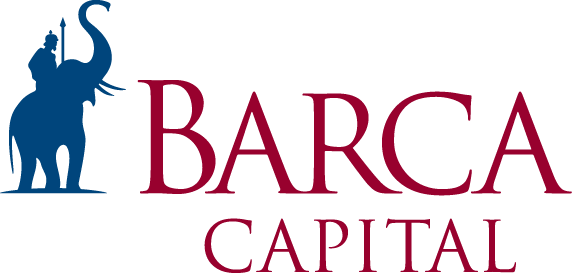Whither EBITDA? Or, when words lose their meaning...
- Ryan Floyd
- Feb 15, 2024
- 4 min read
...even when those words were made up in the first place
Ryan Floyd
Feb 15, 2024
“If names be not correct, language is not in accordance with the truth of things. If language be not in accordance with the truth of things, affairs cannot be carried on to success.” -Confucius, The Analects, Chapter 13
“Words had to change their ordinary meaning and to take that which was now given them. Reckless audacity came to be considered the courage of a loyal ally; prudent hesitation, specious cowardice; moderation was held to be a cloak for unmanliness; ability to see all sides of a question, inaptness to act on any.” - Thucydides, The Peloponnesian War, Chapter 3
In this late year of 2024, many words seem to be changing their meanings. Just look at the English word, “Community.” I contacted customer service at a big tech company the other day and the business thanked me for entering its “community,” a strange use for the term.
In my corner of the world, I have one word that is not in accordance with the truth of things: EBITDA. I think the volatility in capital markets over the past few years partially stems from misuse of EBITDA and confusion around free cash flow.
The “word” EBITDA began to be used in the 1970s, ostensibly around the cable business, as a proxy for free cash flow. The term stands for “Earnings Before Interest,
Taxes, Depreciation, and Amortization.” Free cash flow, on the other hand, is the amount of cash available to shareholders and creditors after things like taxes, capex, changes in working capital, and lease and rental expenses. In those early days of the cable business, I think EBITDA could have been a rough, stable proxy for free cash flow because heavy depreciation enabled the industry to pay few taxes. Rapid revenue growth coupled with negative working capital would have produced enough incremental cash to pay for capex. As time went on, EBITDA was used as shorthand for some portion of free cash flow. Now, however, “EBITDA” is more like a distant, distorted, manipulated version of such cash flows.
Analysts and companies like to use EBITDA, EBITDA margin, and the Enterprise Value-to-EBITDA ratio frequently. I have no problem with these figures if they represented something like free cash flow or even reality. But they don’t.
In the United States, many publicly listed companies pay employees and senior management with stock options. The change in the value of those options is generally not included in EBITDA calculation even when they are quite substantial. When a company’s stock price is rising rapidly, these changes in value can be significant costs for shareholders but usually don’t show up in EBITDA margins. And of course, when a stock is going down, a company most likely will have to pay employees in cash rather than beautiful shares to minimize attrition. The historical EBITDA margins are not a good guide for the future. Using the term “free cash flow net of shareholder-based compensation” would fix this problem.
Outside of the United States, companies have more leeway with capitalizing various intangible assets and amortizing them, usually related to building a database or building and purchasing software. I have even seen companies capitalize marketing costs! One retailer even printed EBITDA ex looting. I’m not kidding. So EBITDA calculations outside of the United States often take out research and development ("R&D") expenses and the costs of a lot of software and sometimes some marketing costs and other things.
Comparing EBITDA margins between a European and American company, for example, can be apples to oranges because the American company excludes large amounts of employee compensation in the calculation and the European company excludes a lot of its R&D (and more). To an analyst, this is annoying because these are usually recurring cash costs that should be expensed through the income statement. Most of us would prefer all of this just to run through the selling, general & administrative portion of the income statement, so it closely approximates the statement of cash flows. Also, different countries tax differently. The EBITDA from one business may contain tremendous cash outflows from changes in working capital and a high corporate tax rate, while another country may have much lower taxes and the business has substantial deferred revenue and thus negative working capital. This is one more reason why home bias exists in investing.
Finally, many businesses got a pass when the accounting standards moved rental expenses to the bottom of the cash flow statement and out of overhead expenses entirely. If the greatest trick the devil ever pulled was convincing the world he didn’t exist, then the greatest trick the accounting bodies ever pulled was allowing rental expense to fall in a tiny footnote and be excluded from EBITDA calculations. Suddenly, everyone’s EBITDA margins increased in just one year even when they had substantial rental expenses. I have heard of companies that prefer using one type of product because it can be counted as a lease and won’t hurt EBITDA margins when of course the impact on free cash flow would be the same.
I hear the opposition to my argument: EBITDA is easy to calculate. It’s generally smoother from year-to-year than free cash flow because it doesn’t include changes in working capital. And it’s easy to hide this or that expense somewhere else on the financial statements. Also, free cash flow margins can be negative. Better to be clear and intentional about communication, however, than positive and opaque.
Nevertheless, companies and analysts may want to use “free cash flow” and it’s “growth” and “margin” after netting out cash lease expenses rather than using the crude EBITDA. As an easy KPI, I would recommend using the phrase “free cash flow” four times in the next set of printed materials like quarterlies, annual reports, or analyst presentations. You might be surprised how much the effort focuses the eye.
Let’s end the game of hide and seek between corporate management and financial analysts. It will help place language in line with reality, and maybe please Confucius and Thucydides after all.
Coda: I close this note with a photo below from out of my window on a road trip.

This document is for informational purposes only and does not constitute an offer to sell or the solicitation of an offer to purchase any securities or investment advisory services. I am the Portfolio Manager of Barca Capital, LLC, but the views I express are my own not necessarily those of my firm.





Comments